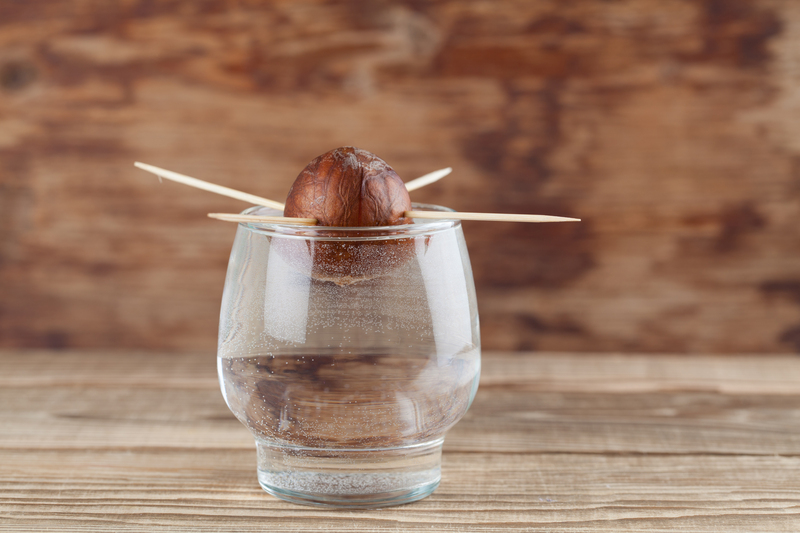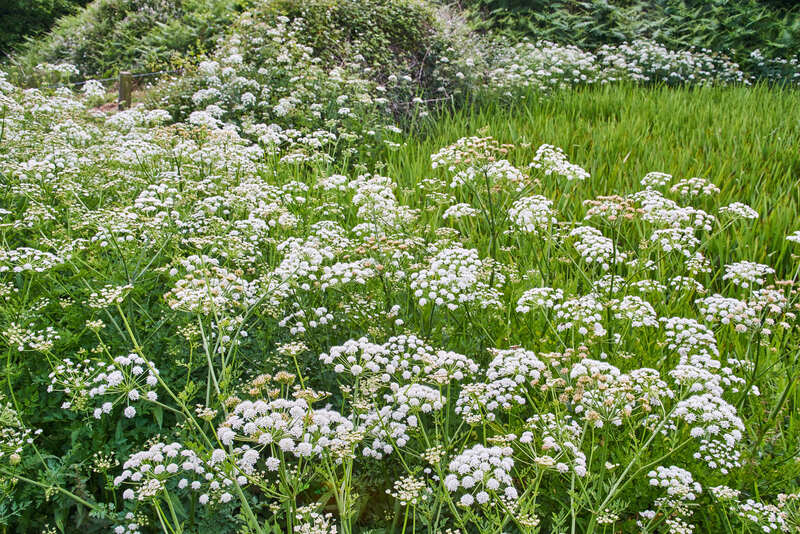Three Proven Tips to Keep Your Garden Weed-Free
Posted on 01/07/2025
Three Proven Tips to Keep Your Garden Weed-Free
Maintaining a lush, healthy, and weed-free garden is every gardener's dream. But as any green thumb knows, keeping those persistent weeds out of your flower beds, vegetable patches, and lawns requires dedication and smart strategies. The presence of weeds not only makes your garden look untidy, but they also compete with your prized plants for water, nutrients, and sunlight. If you're seeking garden weed control tips that actually work, you're in the right place! This in-depth article shares three proven techniques to help you create and maintain a weed-free garden all year long.
Why Weeds Pose a Major Problem in Your Garden
Before diving into the best weed prevention strategies, it's important to understand why weeds are such a big headache for gardeners:
- Weeds compete for essential resources: Water, nutrients, sunlight, and space are all consumed by weeds, often stunting the growth of your plants.
- Weeds harbor pests and diseases: Many weed species attract insects and act as hosts for plant diseases.
- They ruin your garden's aesthetics and make it harder to maintain.
- Weedy gardens can lower property values and neighborhood appeal.

Three Expert-Recommended Tips for a Weed-Free Garden
After years of trial and error, horticultural experts suggest three main strategies for achieving a weed-free garden:
1. Mulch: The Natural Weed Blocker
Mulching is arguably the most effective and eco-friendly way to keep weeds out of your garden. A layer of mulch acts as a natural barrier, blocking sunlight and preventing weed seeds from germinating. In addition, mulch helps retain soil moisture, moderates temperature, and adds nutrients as it breaks down.
- What types of mulch work best?
- Organic mulches (wood chips, bark, straw, grass clippings, shredded leaves) enrich the soil as they decompose.
- Inorganic mulches (landscape fabric, black plastic, stones) offer longer-lasting weed suppression without enriching the soil.
- How to apply mulch for maximum weed control:
- Clear the area of existing weeds before spreading mulch.
- Maintain a 2-3 inch layer around plants. Avoid piling mulch against stems or trunks to prevent rot.
- Replenish organic mulch annually to maintain a consistent barrier.
Insider tip: Combine mulch with landscape fabric for extra protection in persistent weed zones. Simply place fabric down before mulching for a dual-layer defense.
2. Smart, Consistent Hand Weeding Techniques
While it might seem old-fashioned, regular hand weeding remains a critically important part of weed management. Removing weeds while they are still small and before they set seed prevents future invasions.
-
Timely weeding = successful weed-free garden:
- Weed after rainfall or watering when soil is moist--roots loosen more easily.
- Pull weeds before they flower or set seeds. Most weeds spread rapidly once seeding begins.
- Use the right tools, such as hand hoes, weeders, or trowels, to get roots out completely.
-
Don't ignore persistent invaders:
- Perennial weeds like dandelion or bindweed have deep taproots and return if not fully removed.
- Leave no weed debris on the ground. Many types can re-root from fragments!
- Carry a bucket to collect all pulled weeds and dispose of them properly.
Pro Tip: Establish a weekly weeding routine in your garden schedule to prevent weeds from getting out of control.
3. Dense Planting & Ground Cover Strategies
A thick, thriving plant community naturally shades the soil and suppresses weed growth. The more ground you cover with desired plants, the fewer resources remain for unwanted weeds.
-
Dense planting means less space for weeds:
- Space perennials, annuals, and vegetables closely based on their mature size (follow seed or plant spacing guides).
- Interplant fast-growing crops (like radishes, lettuce) with slower ones to shade soil early.
- Use living ground covers such as creeping thyme, clover, or sweet woodruff to fill garden gaps.
-
Why ground covers are powerful weed suppressors:
- They form dense mats over bare soil, outcompeting weeds for sunlight and nutrients.
- They help prevent soil erosion and retain moisture.
- Many ground covers offer additional benefits, from pollinator support to fragrant blooms.
Tip: Replace large, open mulch areas with living ground covers wherever possible for a low-maintenance, beautiful, and weed-resistant garden.

Bonus: Other Proven Weed Prevention Methods
In addition to the big three techniques above, consider these extra methods to keep your garden weed free:
- Practice crop rotation in vegetable gardens to disrupt weed life cycles.
- Avoid tilling unless necessary, as tilling brings dormant weed seeds to the surface.
- Water only where needed (e.g., drip irrigation or soaker hoses) to limit weed growth between plants.
- Solarize stubborn patches by covering with clear plastic during hot months to kill weed seeds with heat.
- Use pre-emergent organic weed preventers (like corn gluten meal) to stop seeds from sprouting in open beds.
Conclusion: A Weed-Free Garden is Within Reach
Employing a combination of mulching, proactive weeding, and dense planting is the most reliable way to keep your garden weed free all season long. Remember: the battle against weeds is ongoing, but with the above strategies, you'll significantly reduce their impact and enjoy a healthier, more beautiful outdoor space.
Stick to these proven tips and you'll spend less time fighting weeds--and more time enjoying a flourishing, low-maintenance garden.
For more garden maintenance tips and proven organic gardening strategies, explore our blog or subscribe to our newsletter!
Latest Posts
Revitalize Your Home with Vertical Gardening
Defensive Planting: Overcoming Wind in Your Outdoor Space
Rooting for Beginners: 9 Essential Gardening Insights
Transform Your Landscape with Unique Hedge Trimming Techniques

